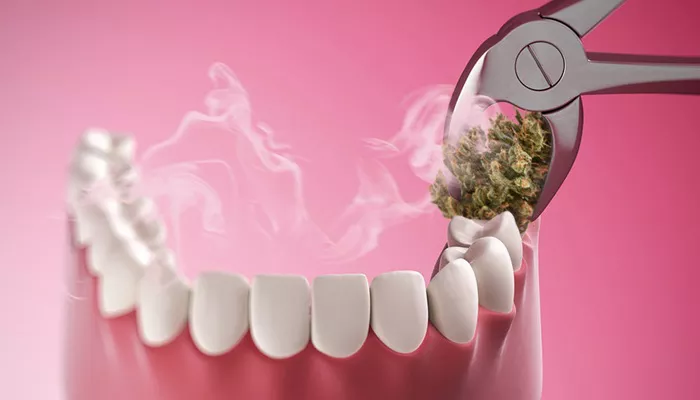Wisdom teeth removal, or third molar extraction, is a common dental procedure performed to alleviate pain, prevent oral complications, and ensure overall oral health. Following the surgery, patients often have questions about their recovery process, including activities like smoking. Here, we delve into the effects of smoking on healing after wisdom teeth removal and provide guidance for patients considering smoking post-surgery.
The Healing Process After Wisdom Teeth Removal
Wisdom teeth, located at the back of the mouth, often require extraction due to various reasons such as impaction, crowding, or infection. The surgical removal involves making an incision in the gum tissue, removing the tooth, and sometimes stitching the wound to promote healing.
After the procedure, patients typically experience some degree of swelling, discomfort, and bleeding. The initial healing phase involves the formation of blood clots in the extraction sites, which protect the underlying bone and nerves. Over time, these clots are replaced by granulation tissue, and the gums gradually close up.
see also: Why Do Other Teeth Hurt After Wisdom Teeth Removal?
Risks of Smoking After Wisdom Teeth Removal
Smoking, whether it involves cigarettes, cigars, pipes, or vaping, introduces harmful chemicals and toxins into the body.
Nicotine, carbon monoxide, and other components of smoke can impair the body’s healing processes and increase the risk of complications after surgery. Specifically related to wisdom teeth removal, smoking can have the following negative effects:
Delayed Healing: Nicotine and carbon monoxide constrict blood vessels, reducing blood flow to the surgical site. This decreased blood flow impedes the delivery of oxygen and nutrients necessary for healing, potentially prolonging the recovery period.
Increased Risk of Dry Socket: Dry socket (alveolar osteitis) is a painful condition that occurs when the blood clot at the extraction site dislodges or dissolves prematurely, exposing underlying bone and nerves. Smoking has been identified as a significant risk factor for dry socket due to its vasoconstrictive effects and potential disruption of clot formation.
Higher Infection Risk: Smoking compromises the immune system’s ability to fight infection. Following wisdom teeth removal, the oral cavity is particularly susceptible to bacterial contamination, and smoking can exacerbate this risk. Infections can lead to prolonged pain, swelling, and in severe cases, systemic complications.
Impaired Wound Healing: The chemicals in tobacco smoke impair collagen production and cellular repair processes essential for wound healing. This can result in delayed closure of the surgical site and increased scarring.
Recommendations for Patients
Given the potential risks associated with smoking after wisdom teeth removal, dental professionals typically advise patients to abstain from smoking during the initial healing period, which typically spans the first few days to weeks post-surgery.
Here are some specific recommendations:
Immediate Post-Surgery Period (First 24-72 Hours): It is crucial to refrain from smoking immediately after surgery, especially within the first 24-72 hours. During this period, blood clot formation is critical for proper healing, and smoking can disrupt clot formation or dislodge existing clots, leading to complications like dry socket.
First Week: Even after the initial few days, it is advisable to avoid smoking during the first week following wisdom teeth removal. The gums and extraction sites are still in the early stages of healing, and exposure to smoke can hinder the healing process.
Extended Healing Period: Depending on individual healing progress and the complexity of the extraction, some dentists may recommend abstaining from smoking for up to 2-3 weeks or longer. Each patient’s recovery timeline can vary, and it is essential to follow personalized post-operative care instructions provided by the dental provider.
Alternatives to Smoking During Recovery
Understanding the challenges of abstaining from smoking, especially for individuals who smoke regularly, dental professionals can recommend alternatives and strategies to support healing and minimize discomfort:
Nicotine Replacement Therapy (NRT): NRT products like nicotine patches, gums, lozenges, and inhalers can help manage nicotine cravings while reducing exposure to harmful smoke chemicals. Patients should consult with their healthcare provider to determine the most suitable NRT option based on their medical history and current health status.
Behavioral Support: Counseling and behavioral interventions can provide additional support for patients attempting to quit smoking or reduce tobacco use during the recovery period. Behavioral strategies can address triggers, coping mechanisms, and long-term smoking cessation goals.
Oral Hygiene Practices: Maintaining excellent oral hygiene is crucial after wisdom teeth removal to prevent infections and promote healing. Patients should follow their dentist’s instructions for gentle brushing, rinsing with saltwater or prescribed mouthwash, and avoiding strenuous rinsing or spitting that could disrupt healing.
Conclusion
In conclusion, while it may be tempting to resume smoking soon after wisdom teeth removal, it is essential to prioritize healing and reduce the risk of complications. Smoking can impair blood flow, delay wound healing, increase infection risk, and contribute to dry socket formation. Patients are strongly advised to abstain from smoking during the initial healing phase and consult with their dental provider for personalized recommendations and support. By following post-operative care instructions diligently and considering smoking cessation strategies, patients can optimize their recovery and maintain oral health after wisdom teeth removal.

